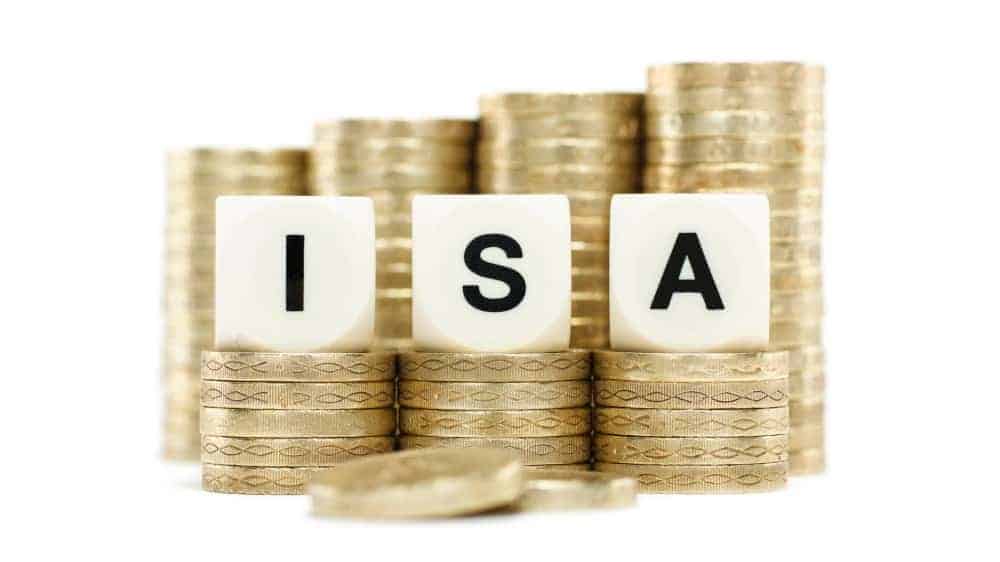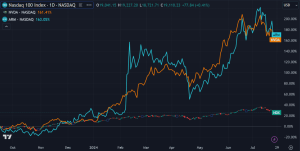Share this page:
If you are thinking of saving or investing your money, an individual savings account (ISA) provides a tax-efficient way to do it. Every UK resident who is over the age of 16 gets an annual ISA allowance of £20,000 to save or invest tax free.
But how many Brits actually use their full annual ISA allowance? What’s the importance of using your full allowance anyway? Let’s find out.
How does the ISA allowance work?
Your ISA allowance is the maximum amount of money you can put into an ISA in order to earn tax-free returns.
The allowance for the 2021/2022 tax year is £20,000. It can be split between different types of ISAs, such as a cash ISA, a stocks and shares ISA, an innovative finance ISA and a lifetime ISA.
How many Brits use their full ISA allowance?
Sadly, the majority of Brits do not use their full annual ISA allowance. But on the bright side, the number of people who do seems to be on the rise.
For example, a survey by Nationwide found that only 18% of ISA savers used their full ISA allowance in the 2014/2015 tax year (when the ISA allowance was £15,000).
For the 2015/2016 tax year, this figure rose slightly to 21% as the allowance also rose slightly to £15,240.
Fast forward to 2020/2021 and research from Sanlam revealed that of those with at least £50,000 of investible assets, 48% had used their full annual ISA allowance of £20,000. Among those with investible assets of between £50,000 and £100,000, the figure was 33%, while for those with more than £1 million to invest, it was 71%.
Of course, the reason many Brits don’t use their full allowance could be that they simply don’t have £20,000 to save or invest every year.
At first glance, this amount may in fact appear out of reach for the average saver. However, you don’t have to put the full £20,000 into an ISA at once. Breaking down your contributions into 12 chunks of around £1,666 per month, for example, may make the goal of using your full annual allowance more achievable.
Is it important to use your full annual ISA allowance?
One key reason to use the full allowance is that you essentially get to keep more of your money. Savings or investments held outside an ISA can incur a heavy tax bill.
The best way to ensure you keep a larger portion of your pot is to use as much of your allowance as possible. This will help you avoid paying more tax than necessary and ensure that you don’t sacrifice additional gains or growth on your money.
Another reason you should always strive to use your full allowance is that if you don’t, you lose it. The allowance resets every tax year. Any portion that is not used cannot be carried over to the following year and is thus lost. Once again, this means sacrificing potential growth and gains.
Is there still time to use your full allowance this tax year?
Yes, there is.
The 2021/2022 tax year will end on 5 April. So you still have plenty of time to use your full ISA allowance.
If you haven’t used any of your ISA allowance for this tax year, it means that you can shelter as much as £40,000 in savings from tax between now and the end of the 2022/2023 tax year.
Which is the best ISA for you?
This will depend on your circumstances, as well as how long you intend to save or invest.
For example, if you reckon that you will need your money in fewer than five years, consider putting it in a cash ISA.
But if you can avoid touching your money for at least five years, then a stocks and shares ISA might be a better option. Stocks have historically outperformed cash savings over a long period of time. To get started, check out our list of top-rated stocks and ISAs.
Of course, you don’t have to choose one ISA over another. You can always split your ISA allowance between different types of ISAs based on your goals or needs.
Please note that tax treatment depends on the individual circumstances of each individual and may be subject to future change. The content of this article is provided for information purposes only. It is not intended to be, nor does it constitute, any form of tax advice. Readers are responsible for carrying out their own due diligence and for obtaining professional advice before making any investment decisions.
Was this article helpful?
YesNo
About the author
Sean is a personal finance writer with a strong passion for helping others become more financially literate and make better financial decisions. He covers everything from credit cards to savings to investing.
Share this page:
Some offers on The Motley Fool UK site are from our partners — it’s how we make money and keep this site going. But does that impact our ratings? Nope. Our commitment is to you. If a product isn’t any good, our rating will reflect that, or we won’t list it at all. Also, while we aim to feature the best products available, we do not review every product on the market. Learn more here. The statements above are The Motley Fool’s alone and have not been provided or endorsed by bank advertisers. John Mackey, CEO of Whole Foods Market, an Amazon subsidiary, is a member of The Motley Fool’s board of directors. The Motley Fool UK has recommended Barclays, Hargreaves Lansdown, HSBC Holdings, Lloyds Banking Group, Mastercard, and Tesco.
This post was originally published on Motley Fool







